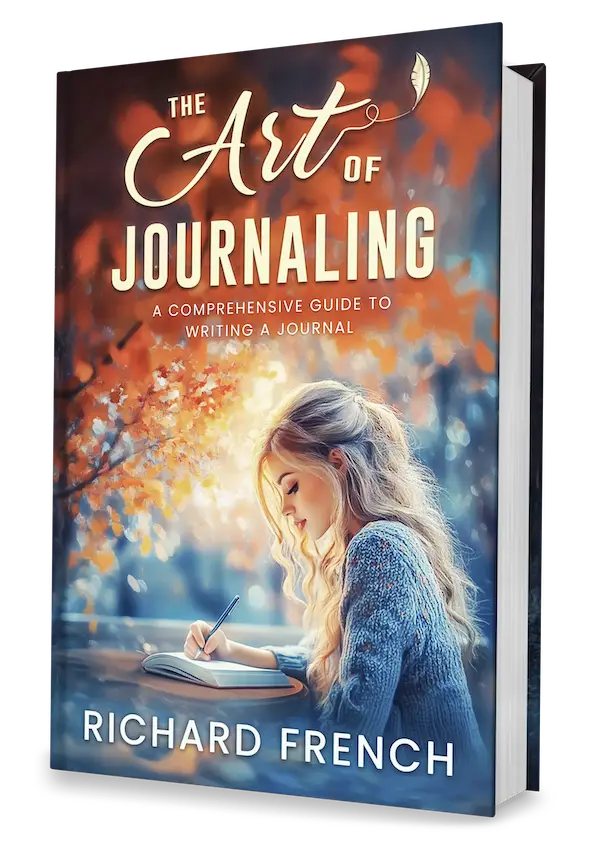Understanding Journal Prompts for Depression
Benefits of Journaling for Mental Health
Discovering effective journal prompts for depression can be a transformative step in your mental health journey. Writing stuff down isn’t just about putting pen to paper; it’s a stress-buster for anyone wrestling with depression. Every scribble is a step toward unpacking your thoughts, a way to say what you can’t out loud, all with zero judgement. What you jot down becomes a window into your soul; with each entry, you get to know those feelings better, like building rapport with your own mind.
Did you know folks actually found journaling reduces their symptoms of depression? Research has shown that targeted journal prompts for depression can help individuals process emotions more effectively and gain valuable insights into their thought patterns. There’s a study in the Family Medicine and Community Health journal that found just that, showing a nice drop in some mental health struggles by a cool 5%. So, not only is journaling quite the handy mental detox, it’s also a wallet-friendly soldier in the fight for better mental health, no fancy gear needed.
Impact of Journaling on Depression
Journaling seems to give sadness the boot. When someone starts journaling, they’re not just chronicling their feelings; they’re sorting them out, too. It’s like serving an eviction notice to those nasty, negative thoughts, swapping them for a more upbeat mindset.
Even during the tough times of the COVID-19 pandemic, the Pandemic Journaling Project showed journaling as a lifeboat. Researchers at the University of Connecticut and Brown University realized it beefed up emotional stamina amidst all the chaos. It’s like an emotional workout!
Beyond that, when you jot down your joy, recalling good times can brighten up your mood and inject that oh-so-needed optimism. It’s a bit like using sunshine to chase away storm clouds; focusing on sweet moments can strengthen resilience and make the shadows of depression a tad less menacing.
Keeping a journal over time is like having a snapshot of your personal growth. Watching your own progress unfold is pretty motivating, reinforcing the will to truck on toward happiness.
Getting all this down means journaling isn’t just about getting thoughts on paper—it’s about making peace with them. Ready to see how words can be your ally? Check out our guides on journaling with prompts and journal prompts for self esteem.
Effective Journaling Techniques
Understanding how journaling can lift spirits is key to tackling depression. Here, we chat about two powerful tactics: pouring your heart out onto the page and making a list of things that light you up. Each offers its own perks and has different quirks.
Expressive Writing for Depression
Expressive writing is like talking to your best friend. You spill your guts on paper for about 20 minutes at a time, usually spread over a few days. The idea is to pour out whatever’s rattling around in your head without worrying about what anyone thinks.
This kind of writing helps you get a grip on your emotions. When you jot down those tough moments or bad vibes, you might feel the emotional weight lift off your shoulders.
Expressive Writing Shortcuts:
- Find a quiet spot where you’re comfy.
- Set a timer for 20 minutes and go.
- Don’t sweat grammar or sentence structure.
- Let loose your real thoughts, no filters.
- Do this for a few more sessions.
It’s a way to untangle those messy emotions. For the picky among us, we’ve got journaling prompts ready to help.
Gratitude Journaling for Mental Health
Turn the spotlight from what sucks to what rocks in your life. With gratitude journaling, you regularly jot down stuff you’re thankful for, growing a garden of good vibes (Mental Health Association of Oregon).
Studies show keeping a gratitude journal can make you more upbeat and aware of fantastic moments (Medical News Today). It’s a great tool for fighting depression, pulling attention from gloom to glee.
Gratitude Journaling Tips:
- Spend a few minutes a day on this.
- List 3-5 gratitude nuggets.
- Dig into the specifics of why these rock.
- Pull out this list when you’re in a funk.
Doing this regularly might flip your view of life’s ups and downs. Check out our journal prompts for self-esteem to boost this habit.
So, expressing your inner whirlwind or counting blessings can really help fight off the blues. These approaches offer a way to handle your feelings structuredly, giving you power over your recovery journey. If you’re hungry for more journaling tricks, see what we’ve got for teens.
Prompts for Journaling

Journaling is like your personal therapist you don’t have to pay! It’s fantastic for wrangling those blues. Below are two prompts that help you stroll down memory lane and polish up your self-care game. While many journal prompts for depression focus on current emotions, these exercises encourage exploring past experiences and future hopes as well.
Recalling Happy Memories
Think of this as dusting off your brain’s photo album. Happy memories can boost your mood like sunshine on a rainy day. Writing about them helps you remember the good times, sparking optimism and reminding you of your own strength. Mental health professionals often recommend specific journal prompts for depression that encourage self-reflection without dwelling on negative thoughts.
Here are some juicy prompts to get you reminiscing:
- Scribble about a time you were grinning like a Cheshire cat. What was the scene? Who was with you? What made it unforgettable?
- Replay a moment when you were as calm as a cucumber. Write down everything—what you saw, heard, smelled, tasted, or felt.
- Jot down a hilarious event. Who were your partners in crime, and why was it a laugh riot?
- Pen a tale about achieving something big. How did you tackle it, and how’d you feel after?
These little exercises can remind you just how much joy you’ve got tucked away in your life backpack.
Need more prompts? Check out these links: journaling with prompts, journal prompts for self-esteem, journal prompts for anxiety.
Reflecting on Self-Care Practices
Ever wonder why ‘treat yo’ self’ is a motto worth chanting? Self-care reflection helps you spot what works like magic for your mood. Whether it’s chocolate or yoga, identifying these gems is key to a healthy mind.
Try these prompts to unravel what keeps you ticking:
- Recall a self-care trick from your playbook that worked wonders. How did it make you feel, and what’s its secret sauce?
- Describe a day where you nailed self-care. What did you do that made you feel wrapped in a cozy hug?
- Think back to when stress levels hit max. What self-care hacks could’ve turned the tide back then?
- Brainstorm new self-care tools or hobbies you’re itching to try. What good vibes do you think they’ll bring?
Reviving tried and tested methods and discovering new rituals can chase away the blues and keep your heart light.
Craving more self-care guidance? Check these out: journaling with prompts, journal prompts for teens, journal prompts for men, journal prompts for students.
Use these prompts as your guide to dance with your thoughts, boost your mood, and rediscover resilience. Happy writing!
Research Insights on Journal Prompts for Depression
Meta-Analysis Findings
A big ol’ study of 20 peer-reviewed randomized control trials has put the spotlight on journaling and its magic for mental health. Turns out, playing around with pen and paper leads to a pretty solid 5% drop in mental health issues compared to folks just chilling in the control group (PubMed Central). Dive deeper, and you’ll see numbers doing the happy dance in certain circles: a 9% decrease for anxiety, 6% for PTSD, though depression plays it cool with just a 2% slide.
| Symptom Subgroup | Average Reduction in Scores |
|---|---|
| Anxiety | 9% |
| PTSD | 6% |
| Depression | 2% |
Women seem to be the VIPs at this journaling party, getting more bang for their buck when it comes to health boosts. A bunch of scribbling sessions lasting just 2 to 4 sittings are the norm, but those who go the distance with 7 to 32 sessions, especially past 30 days, show bigger jumps in improvements, particularly for depression. The most effective journal prompts for depression strike a balance between acknowledging difficult emotions and fostering hope for the future.
Role of Journaling in Improving Mental Health
By incorporating these journal prompts for depression into your daily routine, you’re taking an active role in your mental health journey. Journaling isn’t just keeping a diary; it’s now seen as a trusty sidekick in the battle for better mental health. This comes in two main flavors: expressive writing and gratitude journaling.
- Expressive Writing: This one’s all about pouring your heart out. You focus on the deep stuff for 20 minutes in 3-4 sessions.
- Gratitude Journaling: Here, you’re counting the good stuff—those things in life that make you feel warm and fuzzy.
Getting the hang of journaling really counts for making it work. The study highlights how it can be a handy trick for anyone juggling anxiety, PTSD, or depression, though it’s not the full fix for the latter depression. Remember that working with journal prompts for depression is a personal process that can evolve as your needs change and healing progresses.
Looking for some cool prompts to start your journaling journey? Check out our suggestions for self-esteem boosts, teens, or even kids in 2nd grade. Our prompts for mental health can definitely up your journaling game!







